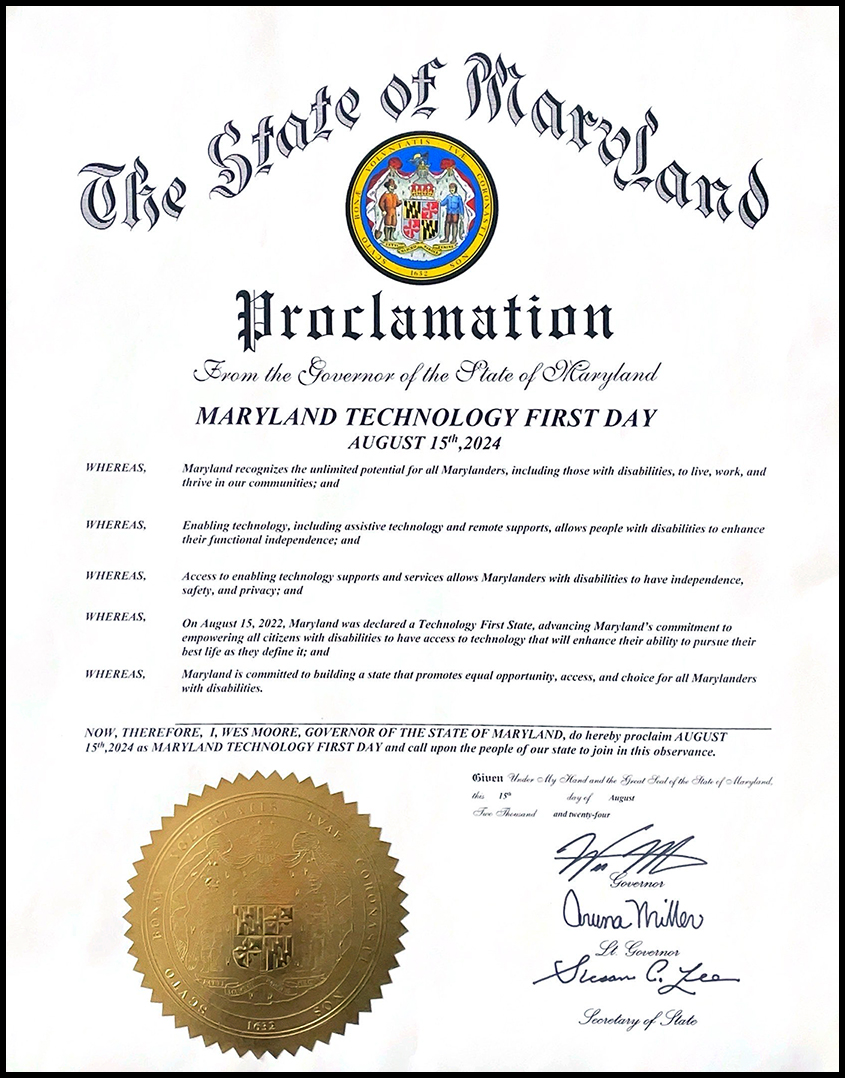Frequently Asked Questions
How do I identify my technology needs?
Talk to your friends, family, and other team members about what your wants and needs are. Once you talk to people you trust, reach out to your Coordinator of Community Services (CCS) about scheduling a team meeting to talk about your options and to see if a technology assessment might be helpful for your planning.
Once I have identified what I need, how do I get the services?
Congratulations on finding technology that can help meet your needs. Please share that information with your CCS who can help create or revise your person-centered plan (PCP) to include Assistive Technology Services.
Where in my PCP should I document my technology needs?
Technology can be identified in your PCP in a variety of locations depending on your needs. For example, you may use technology at home and in the community, so that should be documented in the applicable Focus Area Exploration sections. If technology is being used to support a health and safety need, you should also identify that on the risks page of your PCP. There is also a Technology section, which includes space for you to describe the technology you use throughout your day.
Maryland Resources
-
Maryland Technology Assistance Program (MDTAP) - Offers assistive technology (AT) libraries across the state, AT demonstrations, consultations, short-term device loans, a high-tech AT Reuse Center, training, webinars and a low-interest financial loan program:
mdod.maryland.gov/mdtap/Pages/MDTAP-Home.aspx
-
Access Maryland - Works closely with project engineers, architects, and construction managers to ensure that individuals with a range of physical disabilities can fully interact and engage with buildings, parks, universities, and other state-owned facilities across the state of Maryland:
mdod.maryland.gov/accessmd/Pages/Access-Maryland-Home.aspx
-
Maryland State Department of Education’s Division of Rehabilitation Services (DORS) - Provides funding for work-related technology, e.g., desktop or portable video magnifiers, note-taking devices and specialized software:
dors.maryland.gov/consumers/WTC/RTS/Pages/AT.aspx
-
Arc Tech Toolbox - A place to find, share, rate and review technology for people with intellectual or developmental disabilities:
Tech Toolbox™ (thearc.org)
-
Maryland Department of Transportation - Maryland Transit Administration’s Mobility Link All Access - MDOT MTA Mobility has expanded its service to customers with Mobility All Access, an online desktop and mobile phone software application that significantly enhances previous online services like ride-bookings, lookups and trip cancellations. Mobility All Access replaces PassWeb, the prior application used to book mobility trips, and expands its capabilities for use on smartphones:
Mobility All Access | Maryland Transit Administration
-
Kennedy Krieger Assistive Technology Clinic - Combines innovative technologies and the expertise of specialists to allow children and adults to enjoy many of the same activities as their peers:
Assistive Technology Clinic | Kennedy Krieger Institute
-
Home Modification Self-Help Guide - Provides information and resources about home modification:
peoples-law.org/home-modification-self-help-guide
Tech Tuesdays Webinar Series
-
March 28, 2023: Introduction to Enabling Technology and Remote Supports
-
April 25, 2023: Enabling Technology & Quality of Life: My Home, My Health, My Privacy
-
May 23, 2023: Enabling Technology & Inclusion: My Home, My Health, My Privacy (continued)
-
June 27, 2023: Enabling Technology & Inclusion: My Community and My Job
-
July 25, 2023: “Let's Talk” -
A Conversation with DDA Provider Service Teams and Shift, Inc.
2023 Technology First Anniversary


